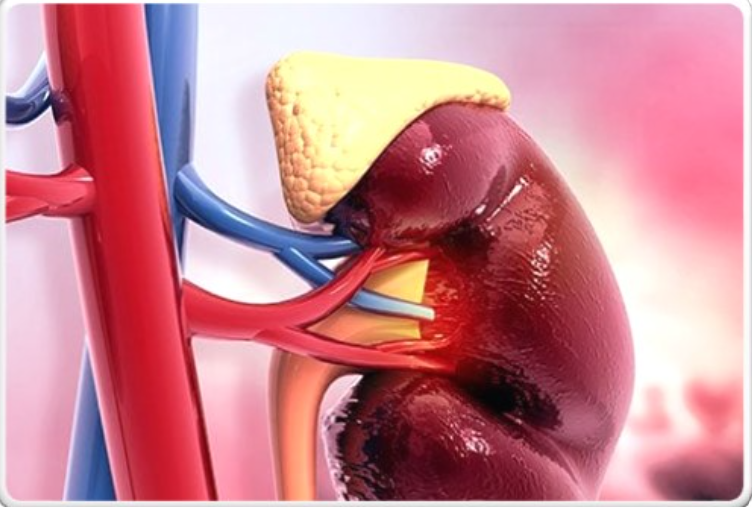Pheochromocytoma (PCC):
These are tumors of the adrenal glands, which are located just above the kidneys. Pheochromocytoma causes the adrenal glands to produce too many stress hormones (adrenaline and noradrenaline), resulting in high blood pressure and other symptoms such as severe headache, irritability, sweating, fast heart rate, nausea, vomiting, weight loss, weakness, and chest pain. This type of tumor rarely occurs outside the adrenal gland (in the abdomen) called (an extra-adrenal pheochromocytoma or paraganglioma)

The cause:
PCC can develop at any age, but it is most common in early to mid-adulthood.
• The condition is often thought to be hereditary, as well as the cause of most pheochromocytomas is unknown. But in some cases, there is a genetic cause.
• This type of tumor may occur in some familial genetic syndromes

The symptoms of PCC:
- A sudden, large increase in adrenal hormones is called an adrenergic crisis (AC) which causes very high blood pressure and a fast heart rate.
- Common flatulent symptoms of PCC are:
- Sweating
- Headache
- Irritability and anxiety
- High blood pressure that may be resistant to conventional medications
- Palpitations
- Stomach ache
- Constipation

Treatment of PCC:
The main treatments for pheochromocytoma include:
- Surgical removal of the tumor:
Ninety percent of patients are treated with surgery to remove benign pheochromocytoma, which is done by laparoscopic tumor removal surgery, by making a small incision in the abdomen
-Blood pressure and hormone levels usually return to normal in the weeks immediately following surgery.
- Medicines (chemotherapy) designed to kill cancer cells
- Radiation therapy uses radio waves to destroy cancer cells
- Medicines to control signs and symptoms of the disease
Medicines to control signs and symptoms of the disease include:
Commonly prescribed medications include:
- Alpha-adrenergic blockers to lower blood pressure: phentolamine
- in addition to Beta-blockers to control a fast and irregular heartbeat



References:
- National Center for Advancing Translational Sciences
- Healthline
- https://www.nichd.nih.gov/themes/custom/nichd/images/NICHD_logo.svg
- New England Journal of Medicine
- Vaughan, E.D., Jr., and Colt, J.J. (2004) Surgery of the adrenals. The Scientific World JOURNAL 4 (S1), 400–426
